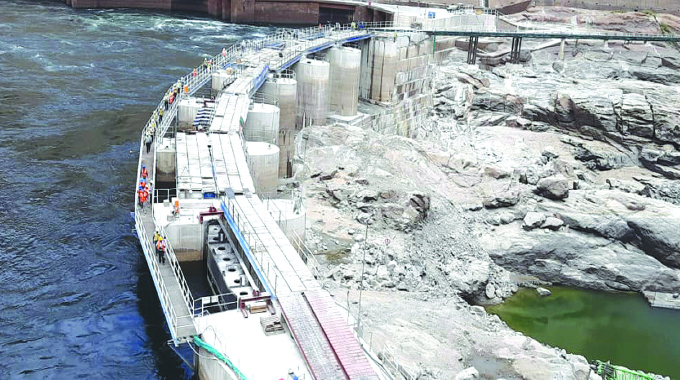Agricultural colleges to transform curriculum

Precious Manomano
Herald Reporter
THE Government will transform agricultural colleges’ curriculum to ensure it meets modern demands and produce skilled graduates that are equipped to achieve goals set out in Vision 2030, Lands, Agriculture, Fisheries, Water and Rural Development Deputy Minister Davis Marapira has said.
Speaking during a launch of a solarisation programme for agricultural colleges held at Mazowe Agricultural College yesterday, Deputy Minister Marapira said it was vital for agricultural colleges to be well-funded as agriculture was one of the key players in the economy.
He said agricultural colleges should be the centres of excellence where they produce and export products to other countries.
“We want to change these colleges so that they produce quality students,” said Deputy Minister Marapira.
“The Ministry of Higher and Tertiary Education, Innovation, Science and Technology Development is championing education 5.0 which now encompasses innovation, research and technology.
“My ministry introduced a new agricultural needs, which is designed to transform agricultural colleges from agriculture education 2.0 focused on training and extension to agriculture education 5.0 which now includes innovation and entrepreneurship.
“This was done so that we have graduates that are able to take farming as a business.”
Deputy Minister Marapira said the new curriculum was the first step in the process of transforming agricultural colleges into centres of excellence, and one of the many initiatives that the Government had undertaken to transform and modernise agriculture in Zimbabwe.
He said the launch of the agricultural colleges solarisation programme was a continuation of Government support towards adoption of climate smart technologies in agriculture, and colleges will benefit from consistent power supply and water for operations and projects.
Deputy Minister Marapira said through the Agriculture and Food Systems Transformation Strategy they aimed to create employment and more opportunities for the youth.
The logical start for agriculture is Vision 2030 as enunciated by President Mnangagwa, that is, Zimbabwe must emerge as a prosperous, empowered and diversified upper middle income society.
Broadly, agriculture is in a good space, and it will grow at the envisaged seven to 10 percent annually in order to accelerate the attainment of the President’s vision.
One of the other issues that are cardinal to this development is that it is agricultural development that must lead to rural industrialisation; it is rural industrialisation that must lead to rural development; and it is rural development that must facilitate the attainment of Vision 2030.
Zimbabwe is an agrarian economy with most of the country’s sectors being directly and indirectly linked to the agricultural sub-sector.
The sector provides employment and incomes directly and indirectly for about 70 percent of the population, supplies 65 percent of the raw materials required by local industries and contributes 40 percent of total export earnings.








Comments